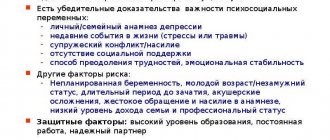Asperger's syndrome is a high-functioning form of autism, a mental development disorder in which a person experiences lifelong difficulties in social communication, social interaction and imagination. According to statistics, less than 1% of the world's population is affected by this disorder. Experts have not yet come to a consensus on what to call this symptom complex: autism spectrum disorder, syndrome, or a feature of brain functioning. Unlike “classical” autism or Kanner syndrome, which is usually accompanied by mental retardation, with Asperger syndrome, intelligence remains at a high level, but among all patients who have been diagnosed with autism spectrum disorder, there are very few people with Asperger syndrome. The Austrian pediatrician and psychiatrist Hans Asperger, a pioneer in the study of autism, who was seriously involved in monitoring children with disorders of social communication and adaptation, called this condition the syndrome of autistic psychopathy. In honor of him, English psychiatrist Lorna Wing coined the term “Asperger Syndrome.” Of course, Asperger's contribution to the study of autism is great, but the doctor's research methods are controversial. Edith Schaeffer's book "Asperger's Children" and other historical investigations reveal the secret about the Nazi past of a child psychiatrist. Psychiatric communities around the world are calling for the term to be abolished, but many sufferers call themselves “Aspies.” How to treat this is up to everyone to decide for themselves.
Causes of Asperger's Syndrome
Asperger's syndrome is a congenital developmental disorder, a form of autism.
The disorder affects a person's perceptions and behavior when interacting with other people. With this disease, it is difficult for a person to understand facial expressions, intonation, postures, gestures, and this affects interaction with other people, as well as the expression of emotions. This can manifest itself in different ways: sometimes people with Asperger's syndrome appear normal, but still have difficulty communicating. Asperger's syndrome is more common in men than in women (by some estimates, 8 times more common). It can occur in both children and adults. It is usually identified when the child goes to kindergarten or school and the first communication problems arise.
The exact causes of the disease have not been established. It is known to be associated with genetic disorders, but the mechanism of inheritance has not been determined. Asperger syndrome is much less common in women than in men, and this, among other things, confirms the genetic nature of the disorder. They also consider the influence of immunological and environmental factors, determine which of them during pregnancy can influence the mother’s body in such a way that it causes disturbances in the development of the child, but so far the exact patterns have not been identified. In addition, scientists are studying the connection between autism spectrum disorders and the influence of social factors, using assisted reproductive technologies, but the accumulated data is not enough to draw reliable conclusions.
Figure 1. Symptoms of Asperger's syndrome. Source: Verywell Health
Learning difficulties
Children with AS typically have average or above average intelligence (especially in the verbal domain) but lack abstract thinking and comprehension skills. They tend to take everything too literally. They have very developed concrete thinking, but their ability for abstractions is reduced. Their pedantic speech and large vocabulary give the false impression that they know what they are talking about, while in reality they are only mechanically memorizing what they have heard or read. A child with AS may simply have a photographic memory, but it is mechanical in nature, the child may respond like a video recorder that plays everything in a certain sequence. These children typically have low problem-solving skills.
Suggestions for organizing studies
- Provide your child with an individualized curriculum that is designed to help your child consistently achieve success. A child with AS simply needs enormous motivation to control his impulses. Studying should provide the child with maximum rewards; it should not provoke anxiety in him.
- Don't assume that children with AS have understood something if they simply repeat what they heard verbatim.
- Offer additional explanations to your child with AS and try to simplify any abstract concepts in the lesson as much as possible.
- Emphasize the exceptional memory of such students. The ability to remember facts may be their greatest academic strength.
- A child with AS may not understand the emotional nuances, different levels of meaning, and relational issues in fiction.
- The writing of people with AS is often monotonous, jumps from one topic to another, and contains incorrect verbal connotations. These children often do not know the difference between general knowledge and personal thoughts, and therefore assume that the teacher will understand their confused expressions.
- Children with AS often have excellent reading skills, but their language comprehension skills are very poor. Don't assume your child understands a text just because they read fluently.
- The academic performance of a child with AS may be poor because the child lacks motivation to engage in activities that are not related to his interests. It is necessary to impose very strict requirements on the quality of work performed by the child. If a certain time is allotted for work, then it may not be completed, but it must be done carefully. A child with AS must correct poorly done class work during recess or through time devoted to special interests.
Symptoms of Asperger's Syndrome
Asperger syndrome manifests itself differently in different people, usually as a combination of several symptoms.
There are several main signs¹:
- Difficulties with nonverbal communication, for example, when speaking, it is difficult to look your interlocutor in the eyes, understand facial expressions or gestures, and intonation.
- Problems in relationships with other people: it is difficult to start communicating, maintain contact, and make friends. Even when people with Asperger's syndrome want to socialize, make friends, and maintain friendships, they find it difficult to do so.
- Inability to communicate emotionally due to problems recognizing other people's emotions.
- Experiences, hobbies, events in the lives of other people do not arouse interest.
- There is a tendency to constantly repeat patterned or limited actions, such as following a certain order of actions (even if there is no practical sense in it) or performing monotonous movements (rocking back and forth, tapping fingers).
- Tendency to constant planning, strict organization, attention to detail.
- Monotonous, unemotional, devoid of intonation speech.
- Strange posture or movements, awkwardness, clumsiness, poor coordination of movements.
- Difficulties in understanding figurative speech, abstract ideas, generalizations, but at the same time good perception of clear, structured information that allows only one interpretation.
- Having sensory sensitivities—certain sensations (bright lights, loud noises, rough fabrics, touch) can be very uncomfortable.
- A high level of anxiety, which in adults can even provoke panic attacks.
The disease does not always have all these symptoms. Disorders can manifest themselves in different ways and affect a person's life and relationships with other people to varying degrees.
Good and bad days
Manifestations of the disease do not always have the same effect on well-being and behavior. Sometimes there may be “good” days when it is possible to avoid irritants associated with sensory sensitivity, and then the state of health remains normal. On “bad” days, due to sensory sensitivity, disruption of plans, or other reasons, anxiety and tension may increase, and this can lead to a breakdown. To ensure that breakdowns occur as rarely as possible, it is important to create a comfortable environment around the child or adult, and to take into account restrictions that are important to him (for example, the need to strictly adhere to a daily routine or avoid large crowds of people).
Signs of Asperger's syndrome in adults
Symptoms associated with Asperger's syndrome can last a lifetime. In adults, several signs may indicate the presence of the disease:
- A specific manner of speech. Sometimes this is an unusual voice timbre or lack of intonation. Often there are almost no pauses in speech; it is more like a monologue, during which the interlocutor is hardly listened to and a lot of facts are told to him.
- Poor facial expressions and gestures. The reason is problems with nonverbal communication.
- Unusual eye contact. During a conversation, a person with Asperger's syndrome simply does not need to look into the eyes of the interlocutor, but if you draw his attention to this, he, on the contrary, may begin to look too closely.
- Problems with empathy. Due to their perceptual characteristics, these people have difficulty understanding others' emotions and therefore seem unable to show empathy or empathy.
- Incorrect behavior. The disease makes it difficult to interpret the reactions of others and intuitively structure one’s behavior correctly. This may make the behavior seem rude, distant, or ill-mannered.
- Concentration on one topic or subject. This can manifest itself in a conversation when a person begins to talk at length and in detail about what he is passionate about, shows an obsessive interest in something, talks non-stop on the same topic, without noticing that other interlocutors are uninterested or uncomfortable.
- The desire to plan. With this violation, it is important to follow a certain order in everything or follow certain rules. Any changes can cause discomfort, anxiety and even panic.
- Manifestations of sensory sensitivity. Due to altered perception, sounds, light, and tactile sensations can cause discomfort. It is described as if the world becomes several times louder, brighter, noisier. This perception influences behavior: a person avoids hugs and touches or tries to avoid being in places that are too noisy.
How can I tell if I have Asperger's syndrome?
Below is a list of statements characteristic of this disease:
- It is difficult for me to understand how others feel and what they are thinking.
- I find it difficult to interact with other people or groups of people.
- It’s hard for me to carry on small talk, to maintain conversations on abstract topics.
- I often try to shift the conversation to a topic that interests me (even if the other person is not interested in it).
- People often consider me a rude or ill-mannered person.
- I have narrow or unusual interests on which I can focus completely and for long periods of time.
- I pay attention to details and remember facts well.
- I find it difficult to make friends or get to know people.
- I prefer to always act in a certain way and not change the order of actions at all.
Poor motor coordination
Children with AS are characterized by physical clumsiness and clumsiness. Their movements and gait may be strange and rigid. They are not successful at games that require motor skills. Their fine motor problems often result in severe difficulties with writing and handwriting, slow reaction times, and can negatively impact their ability to draw.
Suggestions for organizing studies
- If motor problems are severe, a child with AS should be referred to an adaptive physical education program.
- Involve your child with AS in fitness/physical health programs, but allow him or her not to participate in competitive sports.
- Never force your child to participate in competitive sports—poor motor coordination can frustrate the child and lead to teasing from other children. In addition, a child with AS may have difficulty in team games because it is difficult for him to understand how to coordinate his actions with the rest of the team.
- Children with AS may require a highly individualized writing program that includes tracing, copying, and writing on the board. The teacher needs to constantly guide the child’s hand at different stages of letter formation, when connecting letters to each other, and accompany the child’s actions with a verbal script. Once the script is stored in the child’s memory, he will be able to pronounce it himself while writing letters.
- Younger students with AS may need sample phrases written in a notebook to help the child control the size and correctness of letter writing. This also encourages children to try to write as neatly as possible.
- If you assign tasks with time limits, remember to take into account that a child with AS writes slower than others.
- People with AS may take longer to complete exams than their peers. It is best to give them the opportunity to write the exam in a separate room, this will not only give them more time, but also additional structure and the help of a teacher who will remind the children of the task.
Diagnosis of Asperger's syndrome
The first signs of the disease may appear in children at an early age. Parents or a pediatrician may notice them by the age of 2-2.5 years. Often the condition becomes noticeable only after the child starts going to kindergarten or school. Sometimes the disease is diagnosed only in adulthood. The range of symptoms and their severity can vary greatly from person to person. Because of this, problems may arise during diagnosis, and the syndrome itself may remain unrecognized for a long time.
The world for a child with Asperger's syndrome is brighter and louder than for ordinary children. This special perception of reality causes discomfort. Photo: drobotdean / freepik.com
Asperger's syndrome is characterized by several signs, the presence of which makes a diagnosis:
- There are violations of nonverbal communication: for example, problems with interpreting postures, gestures, facial expressions, lack of eye contact when speaking.
- Problems communicating with peers, difficulties maintaining friendships, and communicating with other people.
- There is no spontaneous urge to share joy, achievements, or interests with other people.
- There is a lack of empathy, empathy, emotional or social reciprocity.
- There are stereotypical, constantly repeated actions, activities, behavior algorithms or interests. For example, maintaining an active, narrowly focused interest, the desire to follow a strictly defined routine, make repetitive movements, constant concentration on individual objects or their parts.
Limited interests, repetitive behavior, constant concentration on one thing - all these are symptoms of Asperger's syndrome.
Photo: Poindexter Propellerhead / Wikipedia (CC BY-SA 3.0) At the same time, with this disease there is no speech delay, lag in the development of self-care skills, thinking, adaptation (except for communication with other people). The child grows up inquisitive, his intellect is normally developed, and problems with learning can arise only due to difficulties in communication. Sometimes the disease manifests itself as clumsiness and slight incoordination, but this is not a necessary symptom.
stimming
As with other autism spectrum disorders, with Asperger's syndrome a child or adult may periodically stim - make monotonous rhythmic movements that calm him down, help him cope with anxiety or the influence of an overwhelming sensory environment.
Stimming can manifest itself in different ways: for example, as rocking the body, repeating words, circling in one place, or walking back and forth. Stimming is important - it helps relieve tension, “disconnect” from an irritating factor, and avoid a breakdown. Therefore, it is important not to interfere and, especially, not to scold or shame the child for stimming. In children, several specialists may be involved in diagnosing Asperger syndrome: not only a psychiatrist, but also a psychologist, pediatrician, teacher, speech therapist. Adults should consult a psychiatrist for diagnosis.
People with Asperger's syndrome may have limited or specialized interests, such as building a tower of cans like the boy in the photo. Photo: Andwhatsnext at English Wikipedia (CC BY-SA 3.0)
Very limited range of interests
Children with AS have eccentric hobbies and strange, very intense fixations (sometimes this is an obsessive collecting of unusual things). They tend to endlessly “lecture” on the topic of their interest, constantly ask questions about their interests, and find it difficult to “let go” of an idea. Such children follow their passions regardless of external demands, sometimes they even refuse to learn anything beyond their limited interest.
Suggestions for organizing studies
- Do not allow a child with AS to constantly discuss or ask questions about his or her isolated interest. Limit this behavior by setting aside special times during the day when your child can talk about his interests. For example, a child with AS has a fixation on animals, and in class he constantly asks questions about the turtle that lives in the living corner of the class. It was explained to him that he could only ask questions about the turtle during breaks. It became part of his daily routine and he learned to stop when he wanted to ask these questions at other times.
- Positive reinforcement to promote desired behavior is a critical strategy for helping a child with AS. These children respond very well to compliments, in other words, in the case of a student who constantly asks questions, the teacher can consistently praise him every time the child refrains from asking a question, and congratulate him when he allows the rest of the students to speak. These children also need to be praised for any simple, expected social behavior that other children take for granted.
- Some children with AS are reluctant to complete tasks that are not related to their interest. It is necessary to set strict expectations for them to perform work in class. It is necessary to make it clear to the child with AS that this is beyond his control, and that he must follow the existing rules. However, try to find a compromise with your child and give him opportunities to pursue his interests at other times.
- If the child is especially persistent in his interests, then the teacher should individualize learning tasks in such a way as to include the child’s interest in them. For example, if a child is interested in dinosaurs, then you should offer grammar sentences, math problems, reading texts and dictations about dinosaurs. In this case, you should gradually introduce other topics into the assignments.
- Students can be given individual assignments that link their interest to the learning topic. For example, during a geography lesson about a specific country, a child who is obsessed with trains might be assigned a paper about the transportation system in that country.
- Use your child's fixation to expand his repertoire of interests. For example, one student with AS was obsessed with animals, and when his class studied the topic of rainforests, he not only did research about the animals of the rainforest, but also research about the forest itself, which was the home of the animals. The child then became motivated to learn more about the local people who are forced to cut down the forest - the habitat of animals - for economic survival.
Treatment for Asperger's Syndrome
There is no cure for Asperger's syndrome yet, but some therapies can relieve symptoms, make it easier to adapt to, and help a person with the disorder interact better with society. To do this, it is important to receive support from the treating psychiatrist and psychologist, learn social skills and communication. If other disorders also develop, the doctor may prescribe medications. These can be antipsychotic, anti-anxiety, sedatives, hypnotics and other drugs. Drug therapy is not the main way to treat the disease. The main way to control its course is psychosocial support².
What can help an adult with Asperger's syndrome?
- Information. It is important to accept your own diagnosis, learn as much as possible about it, and understand exactly how and in what situations it has an impact.
- Independence. You need to gradually develop independent living skills. The desire for planning and control can be used in this.
- Education. By studying the norms of social behavior, training communication and social skills, you can gradually learn to communicate.
- Warning. You can use planning to avoid obviously uncomfortable situations (staying in noisy places, crowds of large numbers of people).
- Career guidance. Narrow interests can become a profession. Often, strong concentration on them, the desire to follow the rules, follow instructions allows you to achieve great success professionally.
If Asperger syndrome is diagnosed in childhood, parental support is of great importance, as is social adaptation. To help a child with this disorder, you need to:
- Maintain a calm and friendly atmosphere in the family. It is especially important for parents to take care of their emotional state. It affects the child, and irritability, tension, and fatigue can increase his anxiety and sensory sensitivity.
- Allow the child to remain an individual. Overprotection will not allow the child’s potential to unfold. It is important that he can gain self-service skills and gain independence. This requires gradual training. You can plan it together with your doctor or teacher.
- Develop strengths. The child may concentrate strongly on certain activities. For example, he may constantly draw or study all about his chosen topic. It is important to support such interests, treat them with respect, and develop them. Any of them can become the basis of a profession in the future.
- Make socialization comfortable. It shouldn't be violent. It is important that the child learns to communicate in the mode that suits him. At the same time, he should know that his parents support him. To do this, you need to calmly and in detail explain the rules of behavior in a team, communication with other children, dialogue, and maintaining friendship. It is difficult for a child with Asperger syndrome to adapt to a group of children, and the help of parents is especially important for him.
- Consider sensory considerations. In this disorder, perception is altered so that any sounds may be very loud, colors or light sources may be too bright, or tactile sensations may be irritating. Parents need to find out what sensory features the child has, and, if possible, limit the effect of those factors that interfere with him, alleviating his condition.
- For Asperger's syndrome, it is especially important to develop personality strengths.
Important! You should not scold or physically punish a child for displaying Asperger's syndrome. If he has a breakdown, it is important to protect him from the action of provoking factors. You need to find ways to help with a breakdown, for example, sometimes proper breathing or just resting in a quiet, safe space helps. If a child stimmits (makes repetitive movements to calm himself or concentrate), there is no need to stop him from doing this.
Insistent desire for monotony
Even the smallest change can cause a lot of emotions in children with AS. They are extremely sensitive to environmental stressors, and at times they form very rigid rituals. These children are characterized by increased anxiety, and they suffer from obsessive worry if they do not know what to expect; stress, fatigue and sensory overload quickly deprive them of their mental balance.
Suggestions for organizing studies
Provide your child with a predictable and safe environment:
- Minimize any transitions from one room to another.
- Provide a consistent and stable daily routine. A child with AS must understand the routine of each school day and know exactly what awaits him. Otherwise, he will not be able to concentrate on learning tasks.
- Avoid any surprises or surprises. Prepare your child in advance and very carefully for any special events, changes in the lesson schedule, and any other changes in the usual routine, even if these changes seem minor to you.
- Help your child cope with fear of the unknown by gradually and carefully introducing him to a new activity, teacher, class, school, camp, and so on. This introduction should always be done in advance; it is better to start the introduction immediately after you have informed the child about the upcoming change to avoid excessive anxiety. For example, if a child with AS needs to move to a new school, it will be necessary to arrange for the child to meet individually with the new teacher, give a tour of the new school, and introduce a new routine into the child's daily routine before school begins. For the first few days of school, you can, if possible, maintain the daily routine characteristic of the old school, so that it is easier for the child to get used to the new environment. A new teacher should find out what the child's special interests are and prepare related books or activities for the child's first day of school.
Forecast
In 40%³ of children with Asperger's syndrome, its manifestations soften as they grow older, but problems in communication, sensory sensitivity, and the desire to concentrate on an object of interest may persist.
Psychosocial support is very important for a child with Asperger's syndrome. Sessions with a psychologist can alleviate the symptoms of the disease. Photo: photographee.eu / Depositphotos
If symptoms do not improve as the person gets older, the diagnosis is changed to "schizoid personality disorder", but in fact the person continues to suffer from Asperger's syndrome³. Most often, adaptation results are average. The person becomes more or less independent, but he retains a number of personal characteristics associated with the disease. In many cases, all problems associated with communication, behavior and interaction in society persist to a certain extent throughout life. Symptoms may change over time. Against the background of the underlying disease, other disorders or diseases may appear, including alcohol addiction and depression.
With good adaptation, a person with Asperger syndrome can be very successful in their chosen profession, they can start a family, be completely independent and experience almost no noticeable difficulties in social interaction.
History of the study
The disorder was first studied in depth by the Austrian psychiatrist Hans Asperger, which is why it received its name at the suggestion of Lorna Wing from England in 1981. Back in 1944, a pediatrician described sick children who noticed a lack of inclination for non-verbal communication, very limited emotionality when contacting people around them, and a certain awkwardness in physical exercises.
At the end of the last century, diagnostic standards were developed and introduced into psychological practice. Thanks to them, it was possible to identify children with Asperger's syndrome. This disorder began to be considered a mental disorder, since affected children had difficulties with social interaction, they were found to have a stereotypical repertoire of daily activities and a cycle of repetitive interests.
The diagnosis has been officially removed since 2013 from the American edition of the Diagnostic Manual of Mental Disorders. However, in practice the term continues to be used, although the syndrome has quite common criteria with autism, also listed in the group of autistic disorders.







